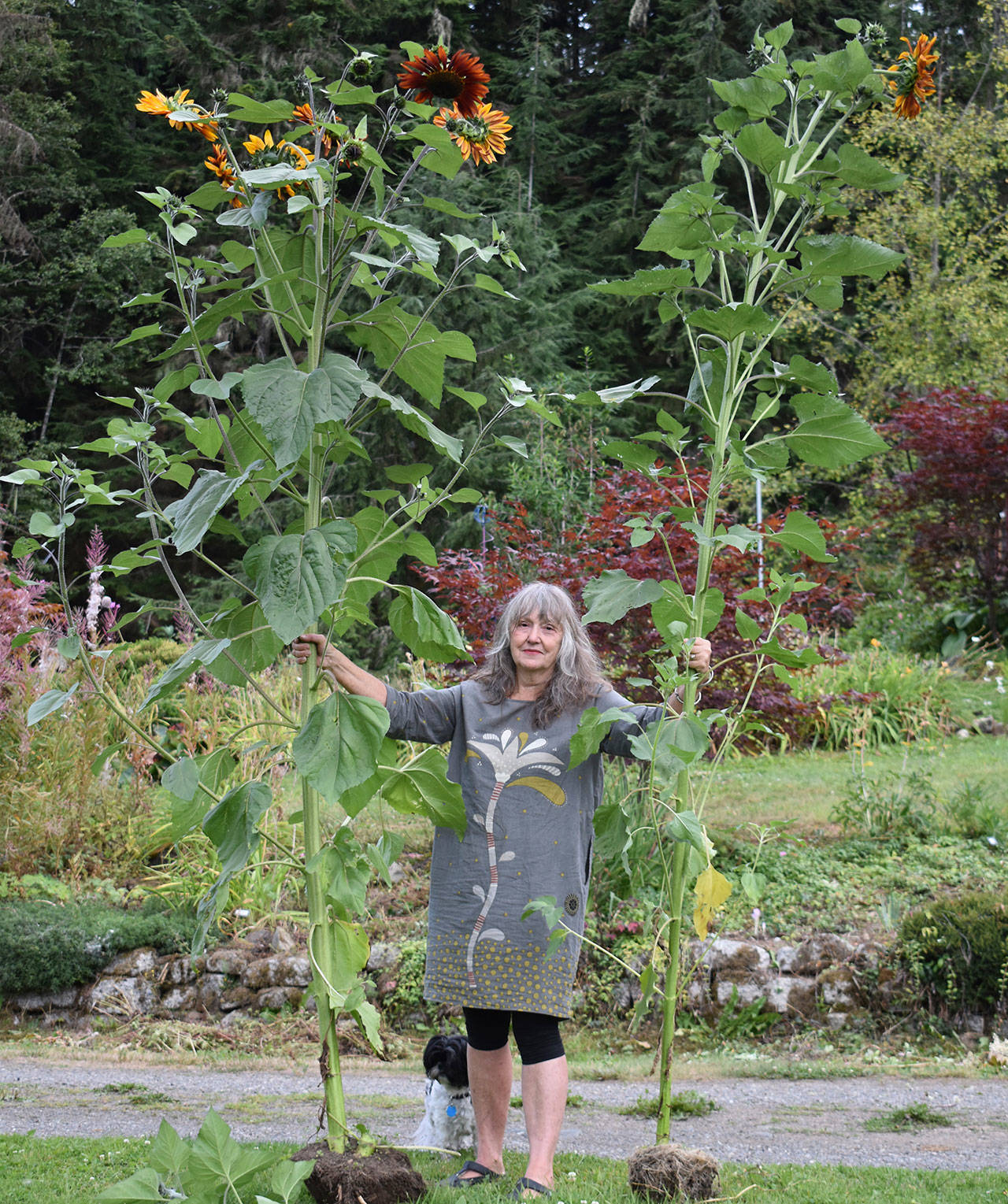Sequim Organic Gardeners
What: Group encouraging organic gardeners of all experience levels
Meetings: Monthly, locations TBA
Next meeting: “Pruning” with Josh Dallen; 10 a.m. Saturday, Jan. 4, KSQM meeting room, 609 W. Washington St.
Contact: SOG98382@gmail.com
Since the group’s inception, the Sequim Organic Gardeners have been happy to let the group ebb and flow … well, organically.
This year — the community gardening club’s 15th — members are looking to step up their organization while keeping the same theme of helping and sharing with each other find the best organic practices on the North Olympic Peninsula.
Formed in late 2005 by local gardener Pam Larsen, the Sequim Organic Gardeners include a wide swath of community members, says Irene Green, from those with backyard and pea patch gardens to those with mini farms and others with community garden plots.
“There are diverse groups within our group,” Green says.
The group includes people who know nothing to those with degrees in agriculture science, she says.
“Some people are experts; some, not so much,” Green says.
“That’s the beauty of our group,” says Carol Reynolds. “We’ve got people who can enlighten all of us.”
Sequim Organic Gardeners hosts monthly presentations on topics of mutual interest, from traditional organic gardening practices to experimental research.
The group kicks off the new year with “Pruning,” a presentation from Josh Dallen of Arbor’s Edge Tree Service, set for 10 a.m. on Saturday, Jan. 4, in the meeting room at KSQM’s office, 609 W. Washington St.
Other upcoming meetings are set for Feb. 4 (“Starting an Organic Garden”) and March 3 (“Soil Testing & Amendments”); times and locations to be announced.
While levels of experience and expertise vary, group members share a belief that organic food and products have significant health benefits as well as benefits or the land and water they use.
“We’re interested in gardening the most natural and best way,” club member Lianne Finnerty says.
Sharing those best practices and lessons learned will help encourage more widespread use of organic principles and techniques.
“Sequim is such a hub of organic gardening,” Reynolds says.
The group is looking to grow, Green says, and that means it could use a bit more structure, more leadership. Sequim Organic Gardeners has about 30 active members and about 50 overall, she says.
Group member Norm Baker touts the effectiveness of biochar, a charcoal like substance made at a specific temperature through woody waste made in a biochar kiln.
Biochar can increase organic production by 30 percent over even the best organic practices, he says.
Now Baker tends to a biochar-enhanced organic garden off Lost Mountain Road.
The biochar, Green explains, essentially grabs on to nitrogen so that plants can access it.
“When you see the produce that comes out of that you won’t believe it,” Baker says.
Baker says he got interested in organic gardening after attending a landscapers meeting in Minnesota in the early 1990s. While much of the talk there was about chemical fertilizing, someone brought up the subject of Terra Preta — a dark, fertile but relatively unknown soil found in the Amazon Basin. The soil was a mixture of charcoal, bone, broken pottery, compost and manure and made the otherwise relatively infertile Amazonian soil extremely productive.
“It just stuck in my mind,” Baker says.
Years later Baker had a garden see production near the spot of some half-burned logs, a kind of accidental biochar.
That kind of specific expertise and other tips are what club members pass along to each other, as well as hearing from guest speakers, touring gardens (August), doing a seed exchange (September) and more.
And, some sharing of the bounty. While the are struggles with citrus fruits and avocados (and mixed results with tomatoes), the peninsula does fine with legumes, beans, berries, apples and pears, club members say.
“All of us grow more food than we can eat,” Green says.
For more about the group, send an email to SOG98382@gmail.com.



